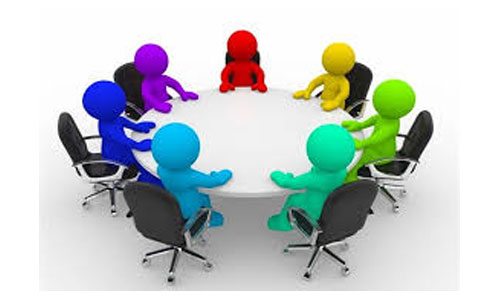Unfortunately, the Afghan political parties, especially the traditional parties could not play a constructive role in past two decades in the country. Instead of getting stronger, they have been downgrading from its national or semi-national positions towards ethnical position even so far as changing to personal business firm. As opposed to holding internal elections, they became more like a heritable property inherited from fathers to the sons and grandsons. While, according to clause 6, 7, 8 and 9 of the article fourteenth of regulatory bill for establishment and registration of political parties in Ministry of Justice, no political party should be formed on the basis of ethnicity, location, language and religion. It means that all people of Afghanistan, regardless of any ethnical or religious affiliations, should see their own identity in establishment of political parties but none has respected the regulatory principles yet.
According to article nine of the same regulation, each political party should have at least 35 members from each 34 provinces of the country, and also establish provincial level offices. The local party organizations are of particular importance for a stable and active party. Here, members can directly be politically active. At this level, they have the deepest contact with their party and politics in general. Local party organizations should conduct regular membership meetings, and support, promote and integrate (new) members. These should be invited to the party and district meetings and social events, as well as to discussions on local politics issues and local initiatives, for instance, residential redevelopment such as building road, schools, business settlements etc.
The second issue which is considered as a weak point of some political parties is their violent background in Afghanistan. Unfortunately, some of the traditional political parties has had undeniably destructive role in past four decades of civil war, and so neither they are friendly with democratic system and rule of law and nor can attract technocrat members from the new generation. Moreover, they seem to have extreme tendencies towards their belonging group or tribe and unfortunately, do not believe in democratic values. On the other hand, the technocrat groups of society have never succeeded to establish a bigger coordination or unity mechanism on the basis of democratic values beyond their respective tribe. As a result, these political parties neither are able to gain the trust of people and nor able to contribute in state building process in the country.
The third weakness of political parties is the lack of having specific political programs in the course of state building or materialization of meritocratic system in the country. They are more similar to political dealers than being proactive strategy makers with having clear outlook for the future of their parties or country. In fact, they are some political brokers than real political parties who produce theories, seek solutions or make political programs for present and future of the nation. Meanwhile, some of the political parties do not have clear fiscal resources and it is said that they receive their budget from unknown resources. In that case, it is obvious that they cannot work for interest of the nation.
The fourth weakness of political parties is the lack of having specialized and expert members. Because of not having proficient cadre they are not able to create national level strategic plans instead they are engaged in unimportant and childish agenda such as ethnic, linguistic and religious issues. On the other hand, they avoid holding internal elections to win the leadership on the basis of meritocratic criteria as they are well aware of their low ability and qualification. If the political parties are managed accordance with modern criteria and standards, they can win the heart of people and also attract numerous expert and high qualified members.
Based on these, Afghanistan does not have any standard and regulated political parties to introduce strong candidates, control the government and produce good programs for the future. However, the new Afghanistan’s constitution enables the political parties to operate openly and this is for the first time in history that parties are fully legal but they never have performed their role and function as it was expected. In modern political system, they should perform an important function in a democratic system such as bridge between government and people, watchdog the government and act as a political alternative in the future. Parties are also expected to propose views on domestic and foreign policies, economic and social policies, and youth and civil policies etc. In order to meet these requirements, each party should have certain platforms and programs. This way the negative competitions are changed to positive competitions and they can start to play essential roles in democratic system.
Without political parties, our democracy is imperfect and not credible. If it continues like this, there is no hope for democracy to produce constructive results in Afghanistan. Only, the parties ensure that the citizens are permanently capable to act politically. They mobilize voters, raise awareness, facilitate governance and monitor the opposing party in power. They articulate and integrate different interests, visions and opinions. They are also the main source for the recruitment of political elites. On the other hand, political parties are not able to play a constructive role in the country unless they start the reforms from themselves. Political parties should not be formed on the basis of sectarian criteria but merely on the basis of national interest and meritocracy.
Home » Opinion » Why The Political Parties Are Marginalized in Afghanistan
Why The Political Parties Are Marginalized in Afghanistan
| Mohammad Zahir Akbari

